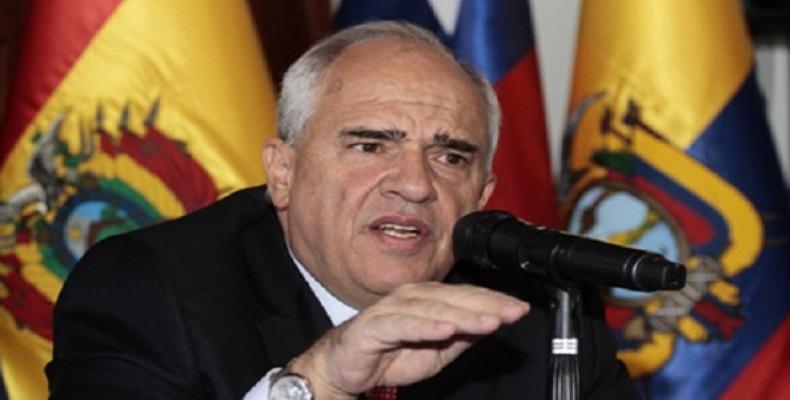Quito, September 2 (teleSUR-RHC)-- The Union of South American Nations (UNASUR) Secretary-General Ernesto Samper announced Tuesday that during the next ministerial meeting of the bloc he would propose forming a commission to verify and guarantee human rights at the border between Colombia and Venezuela.
Maduro suggested on August 28th the creation of the commission in order to clarify the current situation at the border crossings he ordered closed after three Venezuelan soldiers were seriously injured in an attack by paramilitaries from Colombia. The soldiers were carrying out security details at the border against smuggling. Maduro also proposed that a person that represents South America lead the commission.
The Venezuelan government has expressed its full commitment to human rights of all people, including Colombian refugees who are in the country and to those who are sent back to Colombia because they are living without legal documentation in Venezuela.
Nearly 5.6 million Colombians currently live in Venezuela. They came to the country fleeing war, violence and poverty. In Venezuela, they have been granted full protection, including access to education, health, housing, food, culture, work security, sports and other social rights.
In the last nine years, 800,000 Colombians have arrived in Venezuela. About 150,000 Colombians cross the border into Venezuela on a daily basis in search for a better life. All this contradicts the media campaign promoted by Venezuelan and Colombian right-wing forces who are trying to present a false image of Venezuela.
Colombian President Juan Manuel Santos requested a UNASUR meeting last week, as did Venezuela. The meeting, however, was postponed because Venezuelan Foreign Minister Delcy Rodriguez had a prior engagement to travel to Vietnam and China with Maduro.
Also last week, Rodriguez met with her Colombian counterpart Maria Angela Holguin, with whom she agreed to jointly fight crime at the border. However, the tension later escalated with no apparent motive. The Venezuelan diplomatic head said she regretted that the meeting with Holguin was later shadowed by the government of Colombia’s decision to recall their ambassador to Venezuela for consultation. Venezuela also recalled its ambassador to Colombia for talks.
Maduro called on Santos to resolve the issue diplomatically and through dialogue, but the Colombian president has insisted on taking the crisis to international organizations.
On Monday, Colombia failed to garner support from the Organization of American States for a meeting to discuss the border crisis. The regional body's consideration was that the issue was an internal matter that needed to be resolved through diplomacy by the parties involved.


